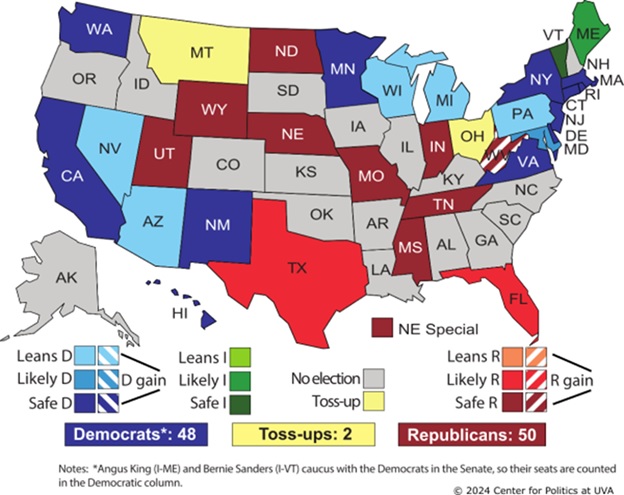
Election 2024 and Muslim Voters
By Aslam Abdullah
CA

Elections are an essential part of democracy. Every year, Americans elect thousands of representatives at various levels to govern our affairs. Where do we Muslims fit in the electoral process? What role we can play in strengthening our democratic institutions? Where can we be most effective based on our voting presence?
We cannot carve out our path without looking at the electoral realities. In this series on elections, we will look at the demographic and political profile of each state and identify states and districts where our voices can be heard effectively. This first in the series is an introduction to the electoral battles shaping up in the country.
There are 519,682 elected officials in the US. 96% of them hold local, 3.6 state, and .1%feseral offices
The 542 federal offices include the President, Vice President, 100 US Senators (two from each state), 435 US Representatives, four delegates to the House of Representatives from US territories, and the District of Columbia, a Resident Commissioner from the Commonwealth of Puerto Rico
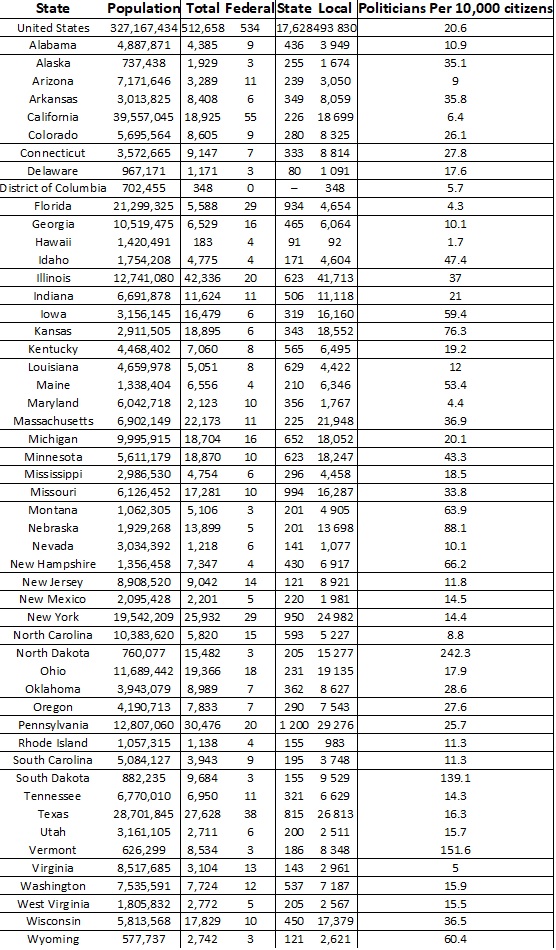
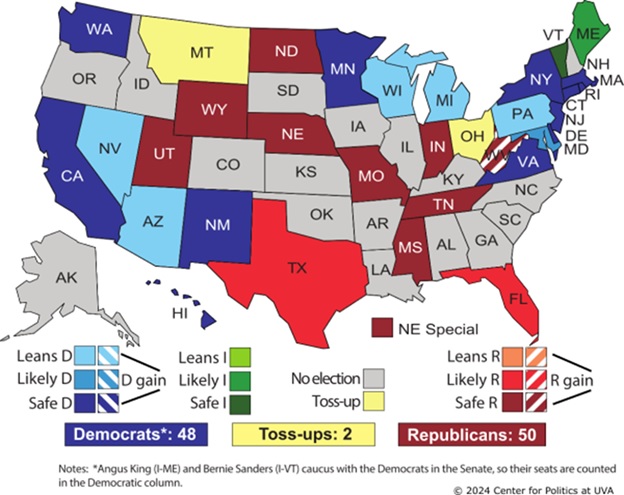
President
In November 2023, Biden and Trump will essentially fight for 46 seats in the Presidential Electoral College. Ninety-nine of them are in Pennsylvania, 11 in Arizona, 10 in Wisconsin, and 6 in Nevada.
Based on current poll analysis, Republicans have 251 electoral college votes, while Democrats have 24. The situation may change.
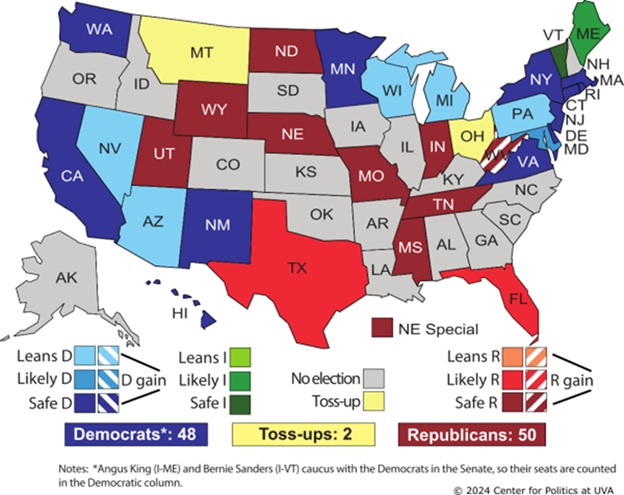
Senate
Of the 33 Senate races, the Democrats are defending 20, the Republicans 11, and Independents 2, Ohio and Montana's races are toss-ups.
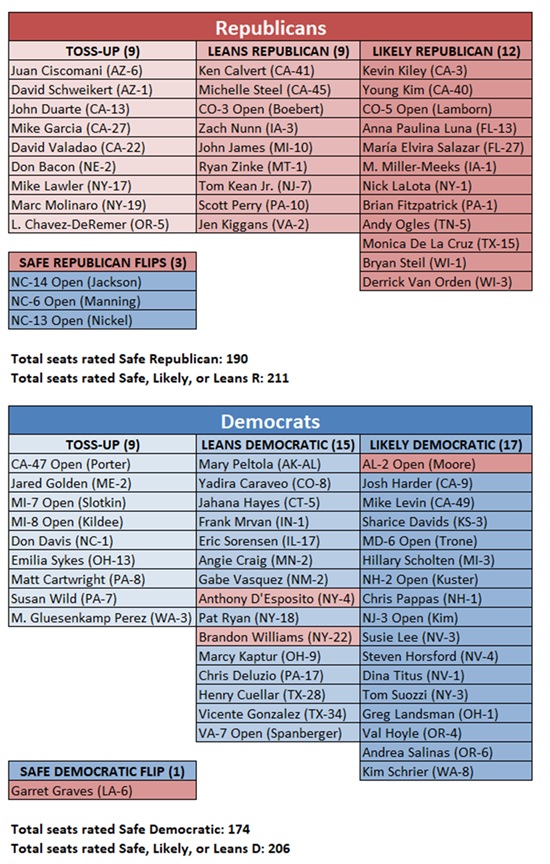
House
Of the 435 House seats, 30 Republicans and 40 Democrats are in contest. Democrats and Republicans are locked in 18 toss-ups.
Governor
Of the eleven states having a gubernatorial election, two have toss-ups. They are Ohio and New Hampshire.
State Legislatures
12 state chambers are competitive—either Lean Republican, Toss-up, or Lean Democratic. .
— The GOP currently holds 7 of the competitive chambers, while the Democrats hold 4 of the competitive chambers. One other chamber, the Alaska Senate, is controlled by a cross-partisan alliance.
Seven of the competitive chambers are rated Toss-up. This category includes the Alaska Senate, three Republican-held chambers (the Arizona Senate, the Arizona House, and the New Hampshire House), and three Democratic-held chambers (the Michigan House, the Minnesota House, and the Pennsylvania House).
(Dr Aslam Abdullah is a resident scholar at Islamicity.org and editor-in-chief of the Muslim Observer newspaper. He is also the Indian Islamic Heritage Project director of the American Federation of Muslims of Indian origin and the interim President of the World Council of Muslims for Interfaith Relations, WCMIR.)

